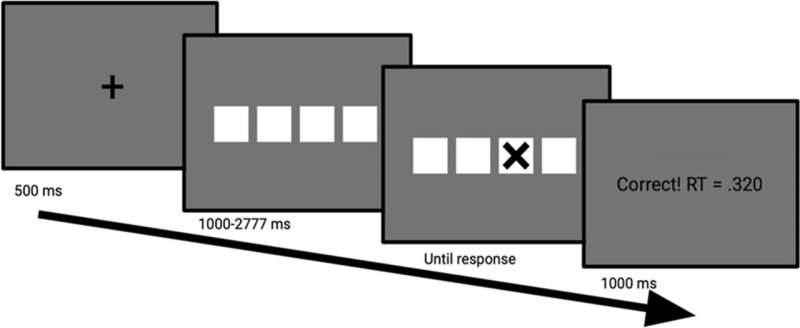This article has been reviewed according to Science X's editorial process and policies. Editors have highlighted the following attributes while ensuring the content's credibility:
fact-checked
trusted source
proofread
Research examines how to stay on task

Our ability to pay attention to tasks—a key component of our everyday lives—is heavily influenced by factors like motivation, arousal, and alertness. Maintaining focus can be especially challenging when the task is boring or repetitive.
"In many activities, it is difficult to maintain a high level of focus over time. Our research asks why this is the case," said Matthew K. Robison, assistant professor of psychology at The University of Texas at Arlington.
He and colleagues at the University of Oregon have published a new study on maintaining attention in Attention, Perception & Psychophysics.
"Our results provide evidence that a simple and easily implementable change in behavior—setting specific goals for oneself—can significantly improve our ability to maintain task focus over time," Robison said. "This can have implications for settings such as studying or working, where a failure to stay focused can lead to impaired performance."
Although humans generally perform fine in situations that require sustained attention, they are often distracted, which can lead to lapses in attention. Common distractions can be anything from thinking about a new romantic interest to reacting to a car honking.
Most attention lapses have minor consequences, like forgetting to forward an email or pick up an item at the grocery store. However, other lapses can lead to serious repercussions, such as a train operator not reacting to an incident, a surgeon forgetting a step in an operation, or an individual forgetting to turn off an oven.
Sustaining attention can be easier said than done, as attention fluctuates across short and long intervals, Robison said. One of the most common approaches to studying lapses in attention has been to examine response time to a variety of tasks.
For this study, Robison and colleagues recruited more than 100 participants to complete reaction time tasks for about 25 minutes. In a standard control condition, participants were simply told to respond as quickly as possible on each trial (about 200 total). Collectively, the results suggest that goal-setting manipulations enhanced sustained attention and reduced lapses in attention.
"In this condition, reaction times systematically increased across time, consistent with the idea that task focus was decreasing," Robison said. "However, when we gave them specific goals to pursue and made those goals harder over time (e.g., keeping their reaction time below 450 milliseconds, then 400, then 350), they did not show that effect."
Collectively, the current results suggest that goal-setting techniques can help individuals better sustain their attention and reduce attention lapses.
More information: Deanna L. Strayer et al, Effects of goal-setting on sustained attention and attention lapses, Attention, Perception, & Psychophysics (2023). DOI: 10.3758/s13414-023-02803-4





















